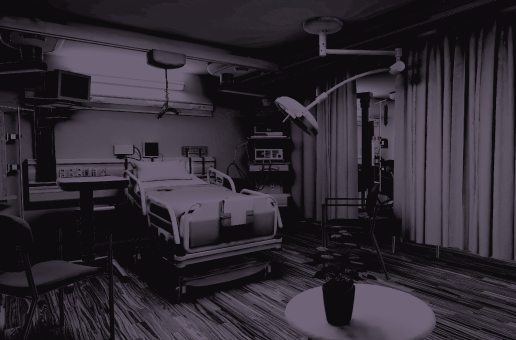Table of Contents:
With Facebook changing their name to Meta, it may seem to some as if social media and entertainment are going to be the main applications of the metaverse. This couldn’t be further from the truth. In fact, if you dig a little deeper, you’ll realize that it has the potential to benefit society in many ways. Companies like XR Wizards are well aware of this and, as such, have been developing metaverse solutions for business through their Mazer platform which can be applied across a number of industries, one of which is healthcare. You might be wondering how the metaverse can be applied to this industry, so in this article, we will address these doubts and outline some ways in which metaverse solutions might positively impact healthcare.
Medical Training in Metaverse
Medical training has involved the use of virtual reality (VR) and extended reality (XR) technologies in recent years, and this will only become more immersive and engaging as metaverse solutions for healthcare continue to develop. For most of this training, all that will be needed is a headset or other wearable device, such as Microsoft’s HoloLens – a headset that is more compact and less invasive than the bulkier ones most people associate with VR technology – meaning that it can be done from anywhere. With such devices, the learning experience can also be enhanced as it appeals to more of the senses than if students simply read from a book or watch a video, while also cutting them off from outside distractions. Such all-encompassing training is far more engaging and therefore far more memorable for students. And because lessons can be constructed to be infinitely repeatable, students can practice complex scenarios again and again.
Haptic technologies will also allow surgeons to train in the metaverse by providing realistic feelings of touch in the virtual world. Students will be able to dive into a digital space which is an exact replica of a surgical theatre to practice performing operations and get used to the high-pressure setting as well. Of course, this comes without any risk to the patient, and without the use of any physical equipment, so both lives and money can be saved. Such metaverse solutions for healthcare also offer the previously impossible opportunity for students to relive operations from the perspective of the surgeon. In this way, they will be able to learn from experts in the most immersive way possible.
Developing New Technologies
When the metaverse has been fully developed, it will be a universe full of interconnected virtual spaces such as the Mazer spaces created by XR Wizards. These will all be interoperable, meaning that individuals will be able to move freely between them from anywhere in the world. Designers and researchers will be able to come together in these metaverse spaces and collaborate from their respective offices or workshops to create new machinery and other medical solutions. This will effectively remove the borders and boundaries of the physical world, allowing the very best scientists and engineers from around the world to connect to build the very best healthcare solutions, all within a comfortable and immersive metaverse space.
Companies like ImmersiveTouch have already created XR solutions for healthcare which can give us an idea of how things might improve as the metaverse develops. They have developed a technology that allows surgeons to view a patient’s anatomy using 3D advanced visualization so that they can visualize the area to be operated on from all possible angles and in great detail prior to performing the operation. With more advanced wearables, they will also be able to see data from MRI or CT scans during surgery, making the process much more precise and effective.
Metaverses technologies will also help to develop decentralised medical platforms. DeHealth, a UK-based company, is building a metaverse platform where doctors can interact with patients no matter where they are in the world. This metaverse space will have its own economy that uses the HLT token and is backed up by blockchain technology, allowing it to become a fully decentralized ecosystem.
The development of digital twins, virtual representations of real-world objects, will also allow doctors to do things that they couldn’t even dream of just a few years ago. At the moment, digital twins are being used to make virtual models of individual organs and body parts, such as the human hearts created by Philips and Siemens, but, eventually, we will be able to create accurate digital twins of patients themselves, allowing us to perform tests or practice surgeries on them to project how they might react, thus making the whole process much more predictable and ultimately much safer. And they aren’t only used to map human bodies; digital twins are applied to supply chains, facilities, and equipment as well, meaning that they can be implemented as metaverse solutions for all sorts of businesses and industries. Of course, this will all mean that there is a huge amount of people’s highly sensitive data floating around in the metaverse, but with blockchain technology, it should be totally secure (see our Mazer blog post about blockchain in the metaverse for more on this).
Although the current applications are limited compared to what many are envisioning, companies like US-based medical outfit Zimmer Biomet are making the best use of the technology as it stands. They are currently using the HoloLens to develop surgical tools, track patient progress, and bring doctors together with their patients in mixed reality experiences to prepare both for procedures and surgeries. From these modest beginnings, it’s clear to see that there is the potential to develop far more sophisticated metaverse solutions for the healthcare industry.
Unlock the future with Mazer: Your innovation partner.
Physical Health in the Metaverse
The metaverse will allow vast improvements to disease management by offering GPs the chance to interact with their patients in a fully digital environment which is ultra-realistic. This means that people with potentially contagious illnesses will be able to see the doctor face-to-face without going into the clinic and putting others at risk. At the moment, telephone appointments and even video appointments are offered by some surgeries, but metaverse appointments will offer a more immersive and personal experience for both patient and doctor.
It’s not only doctors and patients that will benefit from this more personal digital experience. Personal trainers will be able to connect with clients in different countries and even bring together large groups of people in virtual training workshops, giving participants the motivation that comes with mass accountability and the chance to exercise with others without leaving the comfort of their own homes. One great example of this is Zwift. Taking inspiration from Fortnite, they have created a virtual world in which people can connect and exercise together. And the system is highly convenient as users can simply connect it to their own bicycle, allowing them to ride and even compete within the virtual space. They even ran their own virtual Tour De France. Such metaverse solutions will help to lift the overall health of society, perhaps easing some of the burden on the healthcare system.
Mental Health in the Metaverse
Loneliness is said to be one of the worst things for people’s mental health and was a real problem for those living alone through the lockdowns of the recent COVID-19 pandemic. With metaverse solutions for healthcare, people will be able to connect in the virtual world as if they were right next to each other in the real world, thus helping to alleviate the feeling of being alone and allowing companionship and connection even when you are not physically with others.
There is also scope for therapy and counselling to occur in the metaverse. In one Oxford University study, VR therapy led to a 38% decrease in anxiety for sufferers over six weeks. The metaverse start-up Rey is also working in this area by building simulations in which anxiety sufferers can be coached through realistic situations that would trigger their anxiety in the real world. As the metaverse is so life-like, this can help to rewire the brain so that patients can implement the same behaviours in the real world to deal with their anxiety. Psychologists at the University of Southern California ICT have also created Bravemind, a VR exposure therapy used to treat veterans of the wars in Iraq and Afghanistan who are suffering from post-traumatic stress disorders.
Other companies have created whole virtual worlds dedicated to improving mental wellbeing. Bump Galaxy allows ordinary people to enter metaverse environments in which they can work through their mental health issues, such as a forest within which they can meditate or a netherworld where they can confront their fears. Along with this metaverse solution, users will also have access to healthcare professionals from around the globe, further improving the equity of healthcare worldwide. Through these kinds of global collaborations, they hope to create Community Care Records, a search engine for mental health care which is available to all.
Bump Galaxy also hopes to offer games which people can use to work on their mental health. In fact, in June 2020, the FDA approved a video game for the treatment of ADHD in children for the first time ever. It is called EndeavorRX and can actually be prescribed to patients as a therapeutic treatment. Although this currently runs on patients’ smartphones, it shows the possibilities and there’s no doubt that therapeutic metaverse spaces will be created for similar purposes.
Hospitals in the Metaverse
Now, a US healthcare tech company, Treatment, is attempting to build a Medical Metaverse. Treatment has announced ambitious plans to expand the Global Library of Medicine, which will provide a huge amount of data to support patients at home as well as medical professionals during education and decision making. This will bring unprecedented access to medical information for healthcare systems worldwide and facilitate outstanding collaboration across continents for medical staff and for students taking their first steps on their journey into medicine.
Another company, Veyond Metaverse, aims to build the world’s very first metaverse hospital. Like Treatment, they aim to improve the connections between medical professionals around the world to create seamless communication between the very best in the business. They also want to begin a revolution in the world of medical education and training to increase the quality of care offered on a global scale. Another company, Latus Health, has also begun a project to build a virtual hospital. For them, it will be a place where patients will at first be able to come for counselling and physiotherapy treatments. With the quality of modern motion tracking devices, it will be possible for physiotherapists to monitor a patient’s range of movement remotely, saving them long trips to the hospital and making life easier for everyone involved. This kind of technology will be particularly advantageous for those living in remote communities who might normally struggle to receive hospital treatment.
Final Thoughts
With more and more pressure on our healthcare services, the time- and money-saving possibilities of metaverse solutions for healthcare are likely to offer these systems a helping hand. Beyond this, it may help to create a more efficient and safer service for both doctors and patients in the future through improved training and better surgical practices. It is still early days for the metaverse, but it is worth considering how companies like XR Wizards could implement their Mazer platform to start you on the road towards metaverse success.
Read also: VR In Medical Training
How can the metaverse benefit healthcare?
The metaverse holds potential benefits for healthcare, offering applications beyond social media and entertainment. Companies are developing solutions, particularly in medical training, technology development, and disease management.
How does the metaverse contribute to developing new medical technologies?
In the fully developed metaverse, interconnected virtual spaces facilitate global collaboration among designers and researchers. This enables the creation of innovative medical machinery and solutions, breaking down physical borders and fostering collaboration among scientists and engineers worldwide.
What impact does the metaverse have on mental health?
The metaverse positively impacts mental health by offering virtual connections, combating loneliness. Virtual therapy and counseling, exemplified by companies like Rey and Bump Galaxy, provide effective treatments for anxiety and post-traumatic stress disorders.
Unlock the future with Mazer: Your innovation partner.








